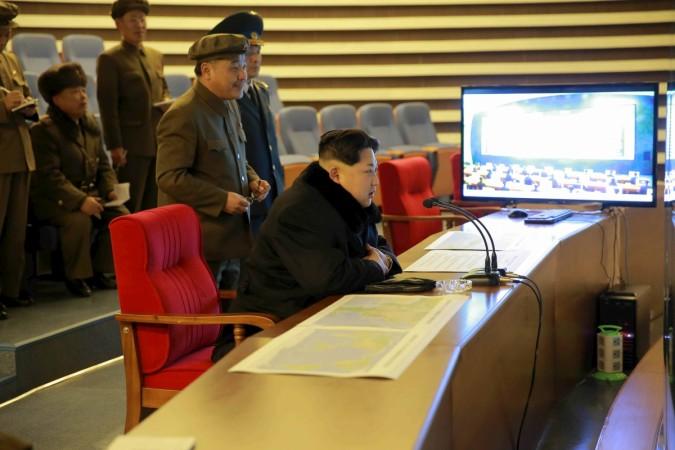
North Korea had been using 70 percent of the total wages paid to the workers at the Kaesong Industrial Complex for the development of nuclear and other military weapons, South Korean Unification Minister Hong Yong-pyo reportedly said on Sunday. The complex was shut down by South Korea on Wednesday.
The average $160/month each paid to 55,000 North Korean workers were spent by Pyongyang on weapons and missile programme, and on luxury goods for national leader Kim Jong-un, South Korea said, according to Reuters.
"About 70 percent of the US dollars paid in wages are taken by the government, while the workers are only given tickets to buy food and other essential items, as well as some local currency," Agence France-Presse quoted Hong as saying.
The money "goes to the North Korean government instead... Any foreign currency earned in North Korea is transferred to the Workers' Party, where the money is used to develop nuclear weapons or missiles, or to purchase luxury goods," Yonhap News Agency quoted Hong as saying.
Seoul shut down all operations at the industrial park in Kaesong, run jointly with Pyongyang, in response to the North's nuclear test and long-range rocket launch earlier this year, despite warnings from the United Nations and international community.
The North declared military takeover of the park following the shutdown and froze all assets of the South after expelling all South Korean nationals employed at the complex.
The complex was opened in 2004 to help cash-strapped North Korea. Seoul paid about $560 million as wages over the years for the workers employed at the complex; however, the money was being "siphoned off" -- a matter Pyongyang was aware about. The South continued the operation at the industrial park as it was a symbol of North-South relations, Hong said.
"But the project continued to siphon off so much money (to the North's regime) and the concerns we had about the complex remained unsolved," he added, according to AFP.
"The international community recognised the significance of operating the Kaesong Industrial Park," Yonhap quoted Hong as saying.
"So we continued to the operation despite multiple nuclear tests. We decided to shut it down this time because North Korea was only going to intensify its weapons development, and we needed to make a decisive move to alleviate our people's security concerns," he added.
North Korea had, on Jan. 6, said it had test-fired a miniaturised version of a hydrogen bomb -- a claim the international community is sceptical about. It launched a long-range rocket on Feb. 7.
It claimed to have launched a satellite, but Tokyo, Seoul and Washington see it as a covert test of inter-continental ballistic missile technology North Korea is banned from using under UN sanctions.

















